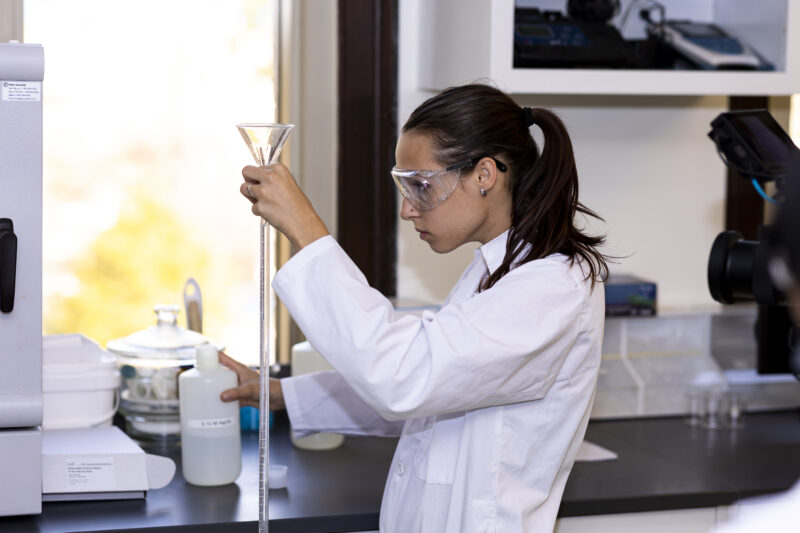2024 Science students will be first class in new program
The incredibly popular Science Program at Dawson has been reviewed, re-imagined and thoroughly revitalized! The Science Program Revision was presented to Dawson’s Board of Governors and approved on April 19.
The revised program will be presented to prospective students this fall for admission in Fall 2024. “With the addition of new core courses in programming, ecology, and statistics, as well as a revamped selection of option courses, the new Science program at Dawson will provide students with the breadth of opportunities they need to be prepared for future university studies,” said Benjamin Seamone, Science Program Coordinator.
There is one Science Program at Dawson, but there are four pathways through it: Health & Life Sciences, Pure & Applied Sciences, Enriched Health & Life Sciences, and Enriched Pure & Applied Sciences.
Second-year choices
The first year gives students a wide variety of courses in science disciplines. The second year allows students to go deeper into particular areas of interest. Those interested in medicine and other health professions will be able to take the prerequisite courses for these university programs. Students with other interests can choose “streams” in ecology and the environment, engineering, and computer science. Some students may choose to be more exploratory and not select a stream for maximum flexibility in choosing courses.
There are great opportunities at Dawson for students to explore their interests and enhance their learning beyond the classroom. These opportunities include the Neuroscience Research Project, the SPACE Certificate and Robotics.
Completing the diversified and rigorous new Science Program prepares students for pursuing university studies in pure sciences, applied sciences, health and life sciences or education.
Congratulations to the Program Writing Committee: Benjamin Seamone (Science Program Coordinator, Mathematics Department), Monica Lopez (Pedagogical Counsellor, Office of Academic Development), Andrew Bodzay (Faculty, Computer Science Department), Jean-François Brière (Faculty, Physics Department), Yann Brouillette (Faculty, Chemistry Department), Bríd Nic Niocaill (Faculty, Biology Department), Andreea Panait (Faculty, Mathematics Department), Laurent Ruhlmann (Faculty, Computer Science Department), and Francesca M. Theriault (Faculty, Biology Department).



